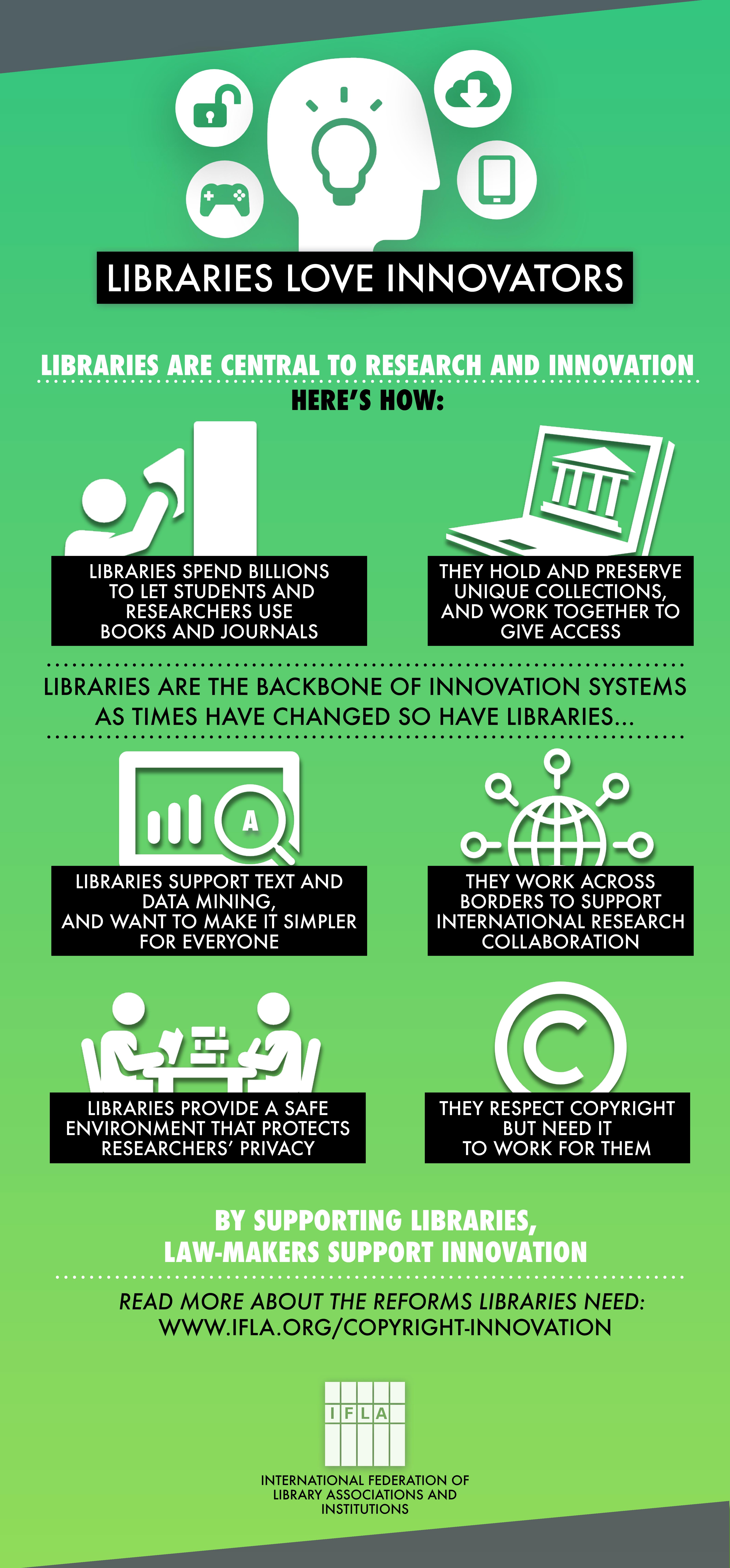Libraries, Copyright and Innovation
Libraries are the backbone of innovation systems. From stimulating literacy and curiosity in children, to providing students with the access they need to become experts, and hosting the world’s great stories of scientific and other knowledge, they are indispensable to progress.
Much of the $30bn spent by libraries around the world every year goes on academic literature. While open access is expanding as a model, research does not necessarily become available to everyone immediately, and subscription journals continue to play a major role. The money libraries spend is indispensable in allowing students and researchers to build their own knowledge as a launching pad for innovation. Only the richest could buy such access on their own.
Libraries are also the guardians of the past. A report from Research Libraries UK has underlined the extent to which library collections contain books and documents which are unique. Thanks to document supply and interlibrary loan, where there are the right laws, it is possible to share copies of books and other documents between libraries, saving researchers money and time on travel. For understanding the developments and trends that have shaped modern society, these collections are essential.
Libraries are also a safe environment. Academic freedom requires students and researchers to be able to explore and ask questions without fear of surveillance or censorship. Libraries are committed to providing a neutral space, which respects this freedom as the best way of driving critical reflection and innovation.
The rise of digital technology offers immense potential for developing and spreading new ideas. Students, researchers and innovators are aware of this, and their expectations of how easy it should be to access and use information, including across borders, are changing accordingly.
However, outdated copyright laws mean that libraries cannot necessarily meet these expectations. For example, laws that only allow libraries to make two copies of a work for preservation purposes are not suitable for digitisation, which requires both ‘format-shifting’, and multiple copies to be made.
And in EU Member States and some other countries, access to library born-digital and digitised resources can only take place on ‘dedicated terminals’. This makes little sense when users expect to be able to use their own devices, and can do so without jeopardising security.
The range of material available for research could be much improved by new, operational rules on books and other materials that are no longer on sale (so called out of commerce works). For many of these, it may not even be possible to identify or contact the author or rightholder – this is the orphan work problem. There needs to be a way to give access to this material, while respecting the interests of authors.
International cooperation is harmed when libraries cannot – through explicit bans or a lack of certainty – provide copies of works to researchers in other countries (known as document supply). Copyright should not stop at the border – libraries need effective cross-border exceptions.
The potential of text and data mining to drive medical and other innovation could be better realised by a simple exception to copyright that does not discriminate according to who is doing it, and for what purpose. Legal access to the work should be enough.
With more and more books and journals bought in electronic formats, libraries are spending less on buying things outright, and more on licences that give access online. We need to ensure the terms of these licences, as well as digital rights management tools, do not undermine exceptions to copyright, such as the right to make private or preservation copies. Otherwise, libraries and their users risk being able to do less with digital works than with physical ones.
It is more adaptable, enforceable exceptions that offer libraries, and society as a whole, the best means of using copyright to promote innovation.
